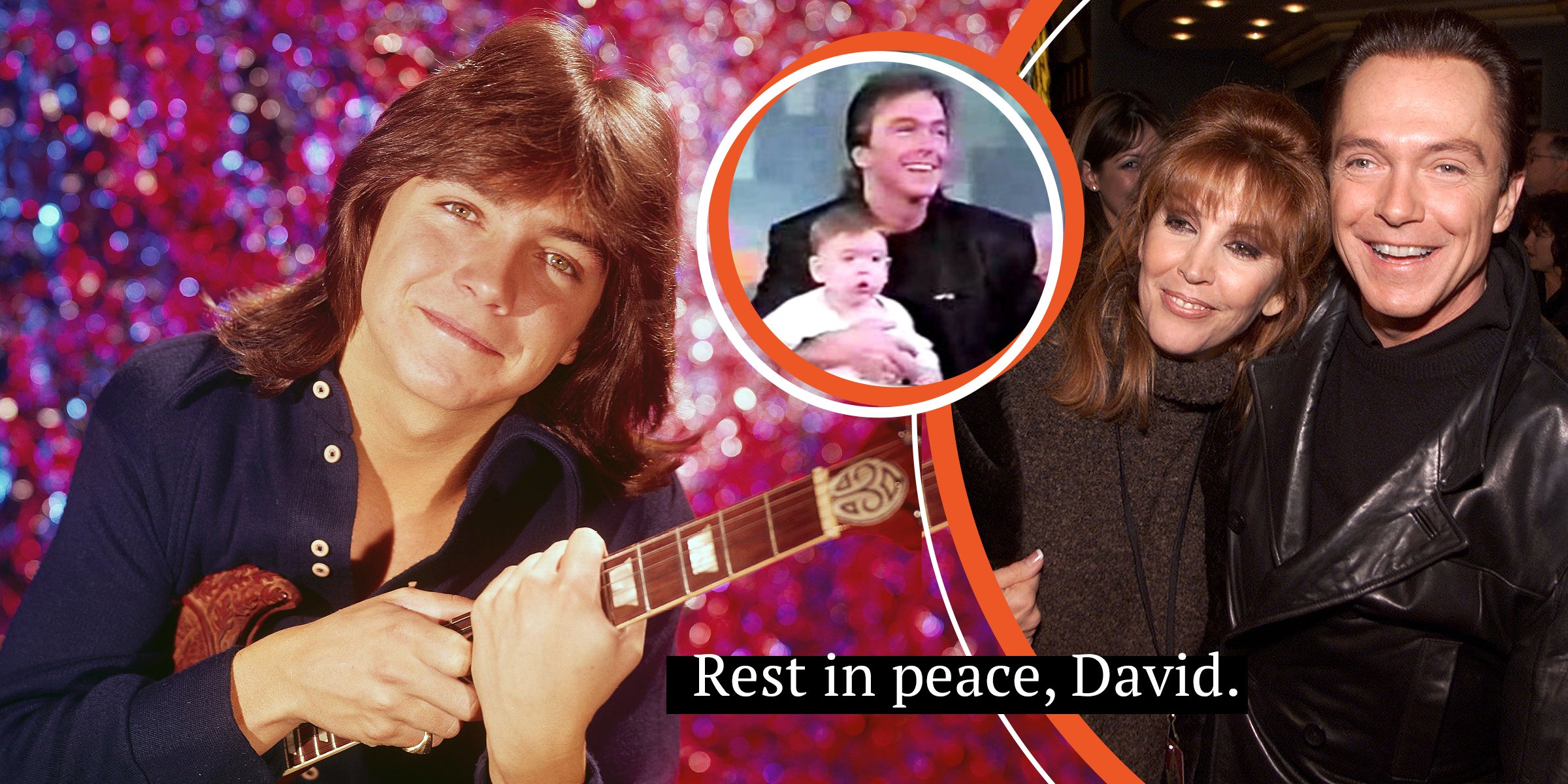
“Sheltered in Your Arms” is David Cassidy’s grown-up love song—where romance stops being fireworks and becomes a refuge you can finally trust.
By the time David Cassidy sang “Sheltered in Your Arms,” he wasn’t trying to recreate the shimmer of his early stardom. This track belongs to the later, quieter chapter of his life—when the applause had long since moved on, and what mattered more was whether a song could tell the truth without posing for the camera. “Sheltered in Your Arms” doesn’t chase you. It waits. And once it has your attention, it speaks in the language of emotional fatigue—of someone who’s learned that the most romantic thing in the world is not intensity, but safety.
The song first appeared on Cassidy’s 1998 studio album Old Trick New Dog, released on his own Slamajama Records label. On the album’s official track listing, “Sheltered in Your Arms” is Track 8. What makes that placement feel so fitting is the album’s broader purpose: it’s a record about reconciling past and present—mixing new material with re-recordings from the Partridge Family era—like a man walking through the rooms of his own history, deciding what still belongs to him.
Crucially, “Sheltered in Your Arms” is co-written by David Cassidy, alongside John Pagano and Reed Vertelney. That co-writing credit changes how the song lands. Even if you never map it onto biography, you can feel the difference between a lyric someone “sings well” and a lyric someone has lived with long enough to need it. The U.S. copyright record tied to the song also points to its formal publication in 1998 (with a listed publication date of May 12, 1998) and connects it to the album’s Slamajama catalog number.
This was not a major chart single—and it doesn’t behave like one. It wasn’t built for quick consumption or easy slogans. Instead, its power is emotional architecture: the way it frames love not as conquest, but as cover from weather. The word “sheltered” is the key—suggesting a life spent exposed to too much noise, too many expectations, too many storms you didn’t choose. In this song, the arms of another person become something almost sacred: not a thrill, but a roof. Not a performance, but permission to stop performing.
Musically, “Sheltered in Your Arms” leans into that same philosophy. It’s shaped with restraint—warm, adult, unhurried—letting the vocal sit in the center like a quiet confession. The arrangement doesn’t crowd him; it supports him. You can hear a deliberate refusal to “oversell” emotion, because the song’s most believable feeling is its understatement. This is what longing sounds like after you’ve outgrown dramatics: calm on the surface, heavy underneath.
There’s also a kind of late-career courage in releasing a song like this in 1998. Cassidy was not competing in the same pop marketplace that had once defined him. Instead, Old Trick New Dog positioned him as an artist reclaiming authorship—literally and figuratively—on his own label. The album’s single “No Bridge I Wouldn’t Cross” even managed Adult Contemporary success in the U.S., a reminder that his voice could still reach listeners when the material met them at a human level.
Later, the song’s life continued beyond the album. It was included on the career-spanning compilation Then and Now, where it sits among the “later-era” tracks that reframed Cassidy not as a memory, but as a continuing artist. Yet “Sheltered in Your Arms” doesn’t really need packaging to justify it. It earns its place simply by being honest about what love becomes when you’ve had your share of illusion.
In the end, “Sheltered in Your Arms” isn’t about falling in love. It’s about what happens after the falling—after the bruises, after the noise—when you finally admit what you wanted all along: somewhere gentle to rest, and someone who lets you be human without asking you to shine.